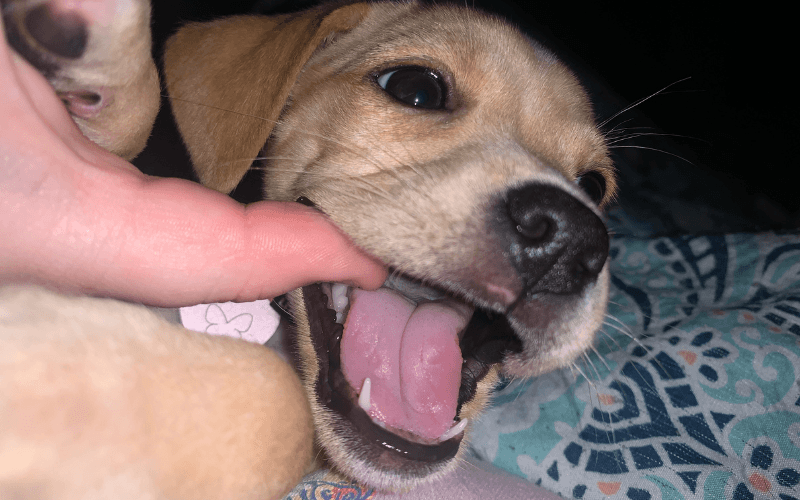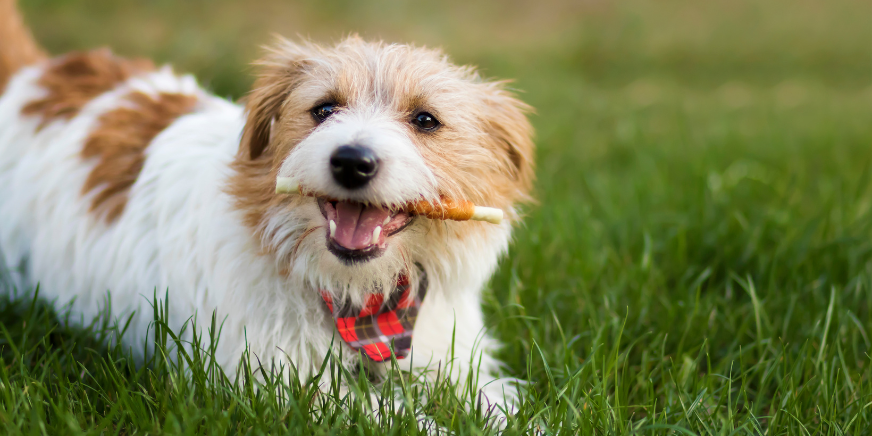
As a responsible pet owner, it’s crucial to be well-informed about the puppy teething process. Typically, puppies start teething at around 3 to 4 months of age, and this phase can last until they are about 6 months old. During this time, their baby teeth start to fall out, making way for their permanent adult teeth. We’re here to provide some puppy teething tips to help your
Now that we understand the teething process, let’s explore some essential puppy teething tips to make this phase more manageable for both you and your furry companion.
Puppies have an instinctual need to chew, especially during the teething period when their gums are sore and itchy. Providing them with appropriate chew toys is essential to redirect their biting behaviour from your furniture or belongings. Look for toys made of durable, non-toxic materials that are specifically designed for teething puppies.
Offer your puppy frozen treats to ease the discomfort and inflammation in their gums. You can freeze puppy-safe fruits like sliced bananas or carrots, or even make puppy ice pops using chicken broth. The cold temperature will provide soothing relief for their sore gums.

Supervise Playtime:
Keep a close eye on your puppy during playtime, especially when they are exploring new areas or interacting with other pets. Teething puppies may chew on objects they shouldn’t, which can pose a choking hazard or be harmful to their dental health.
Regular Dental Care:
Introduce your puppy to regular dental care from an early age. Gently brush their teeth using a soft toothbrush and dog-friendly toothpaste. This will not only help them maintain good oral hygiene but also get them accustomed to the brushing process for their adult life.
Provide Comfort:
Teething can be uncomfortable for your puppy, and they may seek extra attention and comfort during this phase. Spend quality time with them, provide cuddles, and offer gentle massages to alleviate any discomfort.
The most challenging weeks of puppy teething are usually between 4 to 6 months of age when their baby teeth are falling out, and their adult teeth are emerging. During this time, your pup’s gums may be swollen, and tender, and they may experience an increase in chewing behaviour.
Puppy teething typically spans from 3 to 6 months of age. However, individual dogs may have variations in their teething process. Some may complete the transition earlier, while others might take a little longer to have all their adult teeth fully emerge.
It’s essential to differentiate between typical teething behaviour and signs of discomfort or pain in your puppy. While some degree of discomfort is normal during teething, if your puppy exhibits severe signs of distress, such as refusing to eat, excessive drooling, bleeding gums, or persistent crying, it’s crucial to consult your veterinarian to rule out any dental issues or other health concerns.
Puppy teething is a natural process that every dog goes through. By following these puppy teething tips and being attentive to your pup’s needs, you can make this phase smoother and more comfortable for them. Remember to provide appropriate chew toys, frozen treats, and ample affection during this time.
If you’re looking for high-quality toys and treats specifically designed for teething puppies, consider checking out Postman Pooch’s collection. They offer a range of safe and durable chew toys that will help soothe your pup’s sore gums and keep them entertained.
With your support and the right tools, your furry friend will successfully transition to adult teeth, ensuring a healthy and happy smile for years to come. So, embrace this phase with patience and love, and watch your adorable puppy grow into a happy and healthy adult dog.